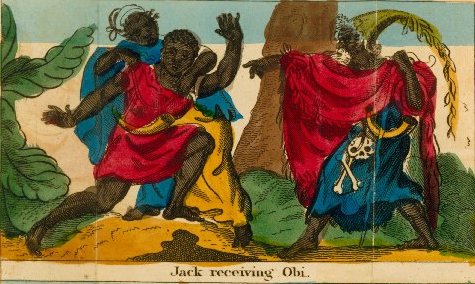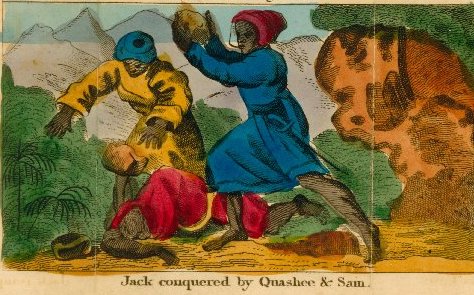Is Obeah a Religion, Science, or Cultural Practice?
Is there a clear answer to this question?
No, the answer to this is complicated, and it might depend on who you ask. For some, it is distinctively one of these things, for others, it might be a combination of them all. Some considered Obeah practitioners as being akin to medical doctors, while others considered them therapists or wisemen. Not matter how Obeah was framed, its political and cultural power reverberated through its communities.
Those that saw Obeah as a medical science would often rely on herbs, baths, and positions to heal the ill of all diseases from simple colds to tumors. While much of this was based on what plants were known and proven to heal, it was also often subject to ridicule by the colonizers, who assumed that Obeah-men were not capable of matching westernized medical sciences. (see: Hans Sloane's A Voyage To the Islands Madera, Barbados, Nieves, S Christophers and Jamaica from 1725)
Speaking to it as a tool of culture, Obeah acted as a cultural/social/moral patrol. It was a regulator of what was acceptable behavior in the communities in which it was practiced. While most were willing participants, many feared that Obeah could be used by their enemies as a tool for revenge. This assured that the people would treat others in the communities well. However, if one did act against the grain of what was socially acceptable, they would still seek out help from Obeah-men in order to protect them against the 'black magic' of Obeah. Eventually, this practice would result in a related religion, the Myal, which was seen as the 'white magic,' or the protective magic, against the potential evils of Obeah.


Scenes from William Earle Jr.'s The Wonderful Life and Adventures of Three Fingered Jack, The Terror of Jamaica!
Obeah: "Magical Art of Resistance"
How was it taken up as political tool?
As a political tool, Obeah was the key to resistance. As Diana Paton thoroughly examines in her work The Cultural Politics of Obeah, Obeah allowed for the people of the Caribbean to push back against colonial rule and incited fear among the colonizers. This fear was so extreme that they attempted to banish Obeah, following the events that took place during Tacky's Rebellion. While the ban was ultimately wildly unsuccessful, it still showed that the power of Obeah was taken quite seriously by colonial rule, and was not just something contained to the Obeah-practitioners and their solicitors. (see: our review of Diana Paton's The Cultural Politics of Obeah).
One thing of Obeah is certain, it held a power over all that were aware of its practice. Its influence on Caribbean people and culture—whether the Caribbean people saw it as a source of fear, emancipation, or healing, was a part of everyday life.
